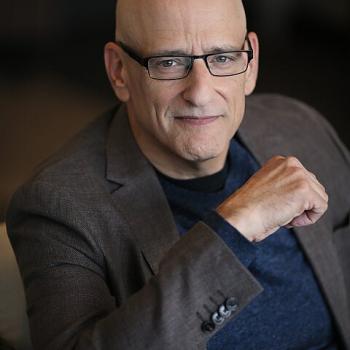In ascribing motives to white Hindu converts to Hinduism—or converts to any religion—it seems a glaring omission to ignore the possibility that one reason, perhaps the reason, for many people to take up a religious practice is their belief that the worldview with which that practice is associated provides a true description of the nature of reality. I was drawn to the practice of a Hindu spiritual path largely because I became persuaded of the truth of a Hindu worldview. There are many Hindu worldviews; but the one I hold teaches the reality of karma and rebirth, is theistic (or more specifically, panentheistic), and includes a practice which, when cultivated, leads to profoundly transformative experiences for the practitioner.
I cannot (and have no desire to) un-persuade myself of these things in the name of political correctness. My main interest, whatever the historical genealogy of my access to these teachings, is in whether they are true. In deriding the practice of white converts to Hinduism as a form of mockery, Sarma commits the genetic fallacy. Is colonialism a deeply problematic part of the history of how Hindu thought and practice became available to people like myself? Certainly. Are white converts sometimes naïve about these historical issues, and would they do well to be better informed about them? Absolutely. Does it have any bearing on whether our Hindu beliefs are true? Not at all.
In another response to a comment on his essay, Sarma has written that his entire point was that the experiences of white converts to Hinduism are different from the experiences of diasporic Hindus. This is of course true. I am not sure if anyone would deny it and am also not sure why anyone would want to deny it. Perhaps what Sarma is really saying is that there is a sacred quality to the experiences of diasporic Hindus that cannot be replicated by white converts, and that he feels offended by what he sees as our attempts at such replication: such mimicry that is really mockery.
What I am saying is that I am not seeking to mimic, much less mock, anyone. I have my white Hindu convert experience. Sarma has his diasporic Hindu experience. Are one of these experiences authentic and the other somehow fraudulent? Or are they both simply different experiences and expressions of an ancient, diverse, yet emerging and ever new, religious tradition? I opt for the second of these choices, perhaps for reasons of which I am unaware, but which Sarma can perceive with his hermeneutics of suspicion. I affirm the sacred character of his experiences and my own. And I do not apologize for opting for universalism over tribalism, and an affirmation of all our experiences.
Dr. Jeffery D. Long is Professor of Religious Studies and Department Chair at Elizabethtown College in Pennsylvania.





